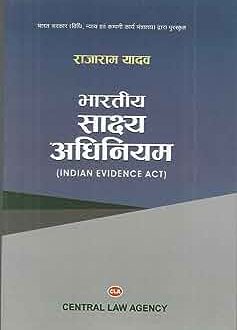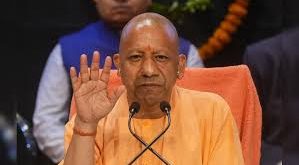New Delhi: Three new criminal laws will come into force in the country from Monday, July 1. These codes of law are Indian ( Indian) Civil Defense Code, Indian Judicial Code and Indian Evidence Act. Some sections have been removed from the new laws and some new sections have been added. After the inclusion of new sections in the law, there will be a lot of changes in the functioning of the police, lawyers and courts as well as the common people.
The new law will have no effect on the investigation and trial of those cases which are registered before July 1. From July 1, all crimes will be registered under the new law. Old cases will be heard in the courts under the old law only. New cases will be investigated and heard within the scope of the new law. The prevailing sections for crimes have now changed, so the court, police and administration will also have to study the new sections. Law students will also have to update their knowledge now.
Names of judicial codes have changed
Indian Penal Code (IPC) is now Indian Justice Code (BNS)
Code of Criminal Procedure (CrPC) is now Indian Civil Defence Code (BNSS)
Indian Evidence Act (IEA) is now Indian Evidence Act (BSA)
Important changes in Indian Civil Defence Code
Indian Penal Code (CrPC) had 484 sections, whereas Indian Civil Defence Code has 531 sections. Importance has been given to collecting evidence electronically through audio-video.
The new law provides for release of prisoners who have served maximum sentence for any crime on private bond.
Any citizen can register a zero FIR in any police station in case of a crime. It will have to be sent to the original jurisdiction, i.e. the area where the crime has occurred, within 15 days.
The concerned authority will give permission within 120 days to prosecute a government official or police officer. If permission is not given, it will also be considered a section. It will be necessary to file a chargesheet within 90 days of filing the FIR. After filing the chargesheet, the court will have to decide the charges within 60 days.
The court will have to give its decision within 30 days of completion of the hearing of the case. After this, a copy of the decision will have to be made available within seven days.
The police will have to give information about the person taken into custody online, offline as well as written information to his family.
In cases related to women, if there is a female constable in the police station, then the police will have to record the statement of the victim woman in her presence.
There are a total of 531 sections in the Indian Civil Security Code (BNSS). Its 177 provisions have been amended. Apart from this, 14 sections have been abolished. 9 new sections and a total of 39 sub-sections have been added to it. Now under this, the statements of witnesses during the trial will be recorded through video conferencing. All the courts of the country will be computerized before the year 2027.
Changes in the Indian Evidence Act (BSA)
There are a total of 170 sections in the Indian Evidence Act. Till now there were 167 sections in the Indian Evidence Act. 6 sections have been repealed in the new law. Two new sections and 6 sub-sections have been added to this Act. There is also a provision for the protection of witnesses in it. Like documents, electronic evidence will also be valid in the court. This will include evidence obtained from e-mail, mobile phone, internet etc.
Changes made in the Indian Justice Code (BNS)
While there were 511 sections in the IPC, there are 357 sections in the BNS.
Crimes related to women and children: These cases have been kept from section 63 to 99. Now there will be section 63 for rape. The punishment for misdeed has been clarified in section 64. There is section 70 for gang rape. Sexual harassment has been defined in section 74. In case of rape or gang rape of a minor, the maximum punishment is death. Dowry death and dowry harassment have been defined in sections 79 and 84 respectively. The crime of having sexual relations by promising marriage has been kept separate from rape. It has been defined as a separate crime.
Murder: Mob lynching has also been brought under the ambit of crime. In these cases, provision has been made for 7 years imprisonment, life imprisonment or death penalty. Crimes of causing injury have been defined in sections 100 to 146. Punishment in case of murder has been clarified in section 103. In cases of organized crimes, there is a provision for punishment in section 111. In cases of terrorism, the Terror Act has been defined in section 113.
Marital rape: In these cases, if the wife is above 18 years of age, then having forced sexual relations with her will not be considered rape (marital rape). If someone has sexual relations by promising marriage and then does not fulfil the promise, then there is a provision for a maximum punishment of 10 years.
Sedition: There is no separate section for sedition in BNS, whereas there is a sedition law in IPC. Such cases are defined in section 147-158 in BNS. It provides for life imprisonment or death penalty for the guilty person.
Mental health: Harming mental health is considered cruelty. It provides for 3 years of punishment for the guilty.
Electoral crimes: Election related crimes are kept in sections 169 to 177.
 Indian Thought Latest News & Views
Indian Thought Latest News & Views



